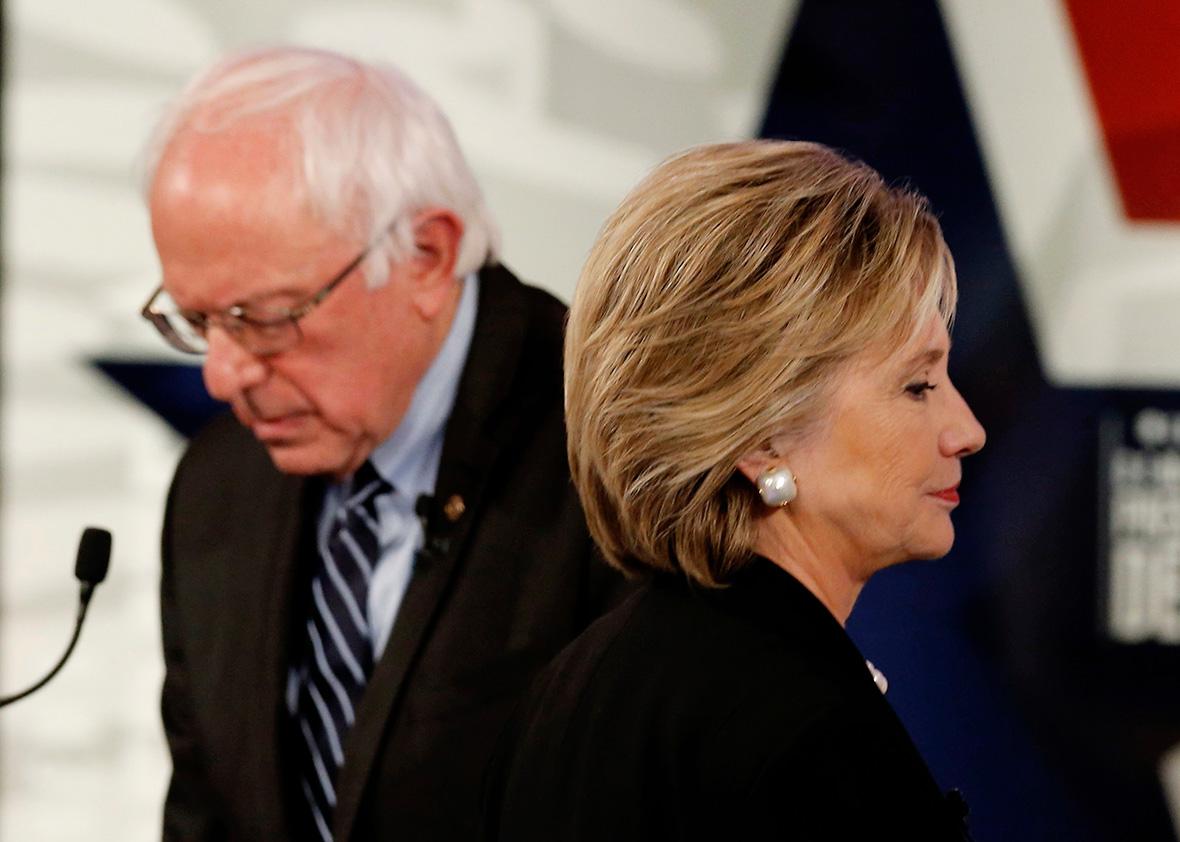In a last minute change brought on by Friday night’s events in Paris, the Democratic debate began with a discussion of counterterrorism and foreign policy. But any voters hoping to hear new thinking on how to address the growing global threat of ISIS were disappointed: None of the three candidates took the opportunity to distinguish their foreign policy platform from that of the current administration, or, for the most part, from each other.
Vermont Sen. Bernie Sanders, who has struggled to define a foreign policy vision for his economically focused campaign and was reportedly upset about the format change, seemed uncomfortable, referring at one point to Muslim countries that “oppose Islam” and using, perhaps unintentionally, the loaded term “boots on the ground” to call for other Muslim countries to take a greater role in fighting extremism. Asked for any criticism of Clinton’s tenure as secretary of state, he instead referred once again to her Senate Iraq war vote.
Former Gov. Martin O’Malley chided Clinton for saying that the war against extremism is “not America’s fight” before agreeing with her in substance that the U.S. should act only as part of an international coalition. He also suggested that the phrase “boots on the ground” is disrespectful to troops, but overall, his contributions were more linguistic than strategic.
One big question throughout the campaign has been whether Clinton, who as secretary of state was generally more hawkish and interventionist than Obama, would take the opportunity to distinguish herself from her old boss on foreign policy. She did, a bit, but you had to read between the lines to pick up on it. Clinton said that ISIS “cannot be contained; it must be defeated,” likely aware that Obama is currently being widely criticized for saying a day before the Paris attacks that the group had been “contained.” She also noted that she “did early on say that we needed to try to find a way to train and equip moderates so that we would have a better idea of how to deal with Assad.” Clinton had formulated a plan for arming Syrian rebels as early as 2012 but was overruled by Obama. But these distinctions were likely lost on most viewers, who haven’t been paying close attention to the administration’s debates over Syria policy.
All the candidates agreed that the fight against ISIS requires a coalition, which the Obama administration has tried with mixed success to build. All favor a diplomatic approach to ending the conflict in Syria, which the administration is attempting to pursue. All favor taking in more Syrian refugees, as does the administration. John Kerry would even agree with Sanders that climate change is as big a threat as terrorism.
There is one key area of disagreement. O’Malley and Sanders, like President Obama, are opposed to establishing a “no-fly zone in Syria.” Clinton, like several of her Republican rivals, supports setting one up. However, this didn’t come up at the debate.
Given that the administration frequently seems flummoxed by how to deal with Syria and that the Republicans are hardly brimming with coherent proposals of their own, it was perhaps unfair to expect any brilliant solutions to the intractable crisis from the stage tonight. Still, some new thinking or genuine debate would have been nice.
